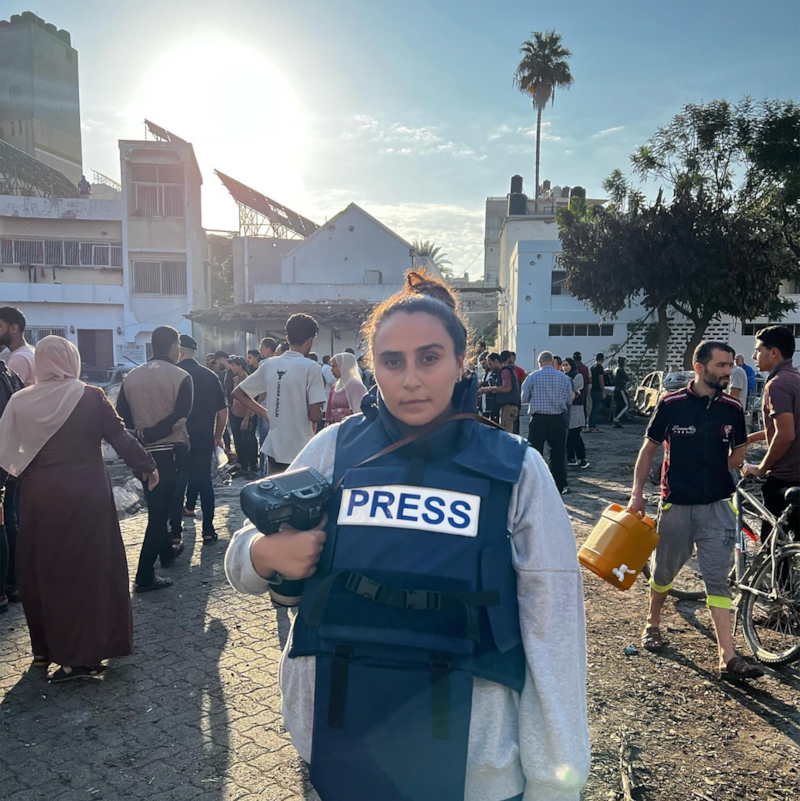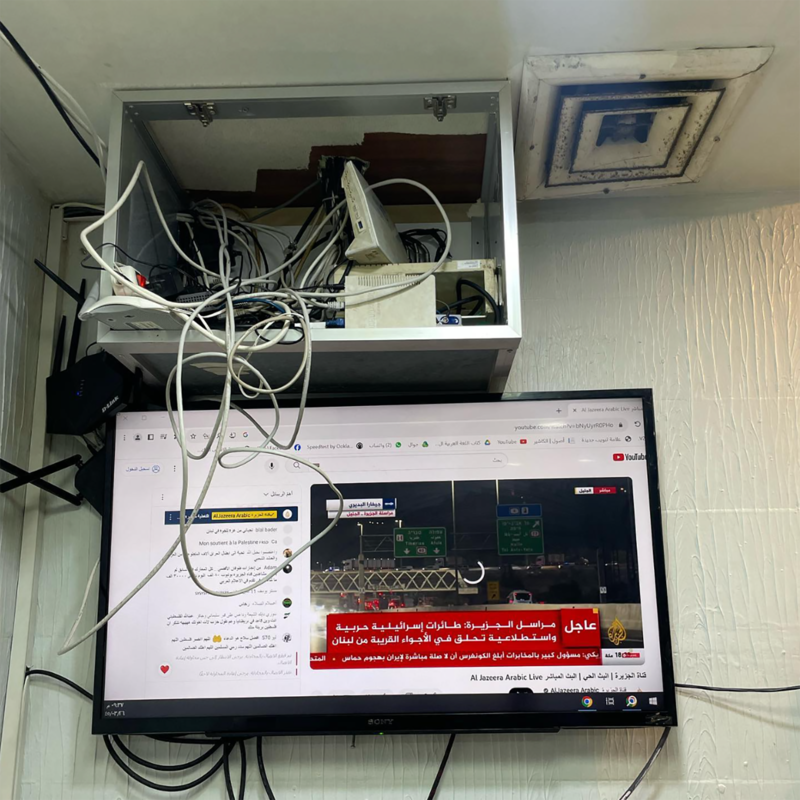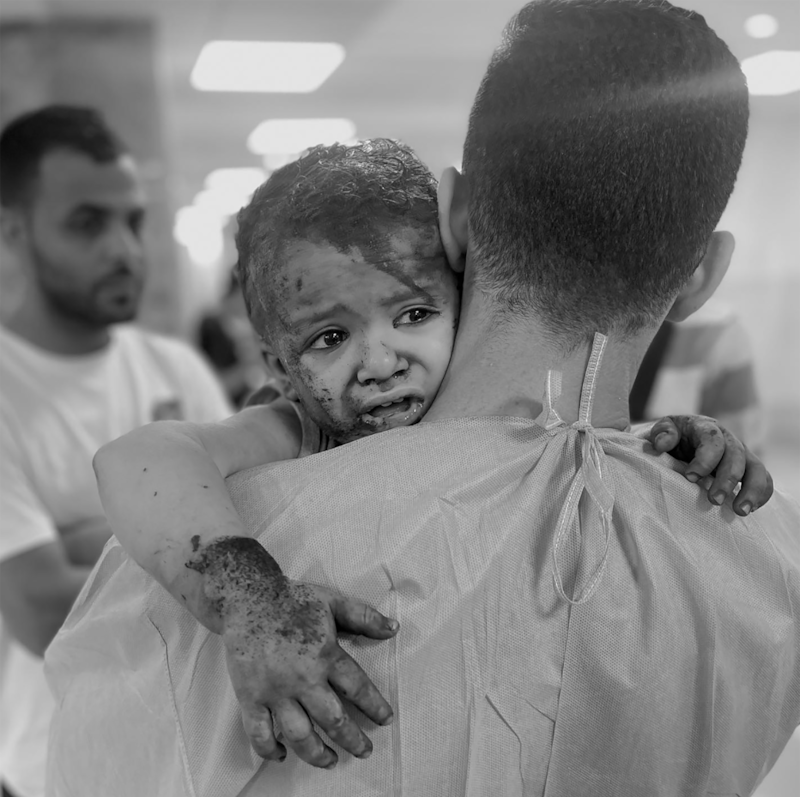More than a third of all homes in Gaza have been razed to the ground by the campaign of Israeli air strikes that began after the horrific attacks by Hamas operatives on October 7 claimed hundreds of Israeli lives. More than half of Gaza’s population has already been displaced, at least 6,500 people have been killed. The statistics of destruction stretch far into the distance – with worse expected to come.
Aid agencies have become increasingly urgent in their messaging, with ever more stark warnings about what the future holds for Gaza, particularly as movements of emergency supplies and fuel remain fickle and slight. Current rates of delivery are far, far below what is needed.
The humanitarian situation is declining at an alarming and visible rate. The UN Relief and Works Agency, or UNRWA, said earlier this week that “without fuel, there will be no water, no functioning hospitals and bakeries. Without fuel, there will be no humanitarian assistance. No fuel will further strangle the people of Gaza”. Even for those who are far removed from the conflict, or who are still burning with anger over the circumstances that gave rise to this round of violence, it is impossible to miss the desperation of those words.
Gaza’s health ministry announced in midweek that more than 40 medical facilities within the enclave were out of service. Those hospitals that still have the ability to function are overrun with people who need urgent medical attention. “The wounded are everywhere,” one doctor in Gaza told The National this week, “they are on the floor, on the stairs and in the garden.”
Meanwhile, at the end of last week, Israeli Defence Minister Yoav Gallant offered insight into what the next few days might hold, with more than 200 Israeli hostages remaining in the enclave. He said there would be further aerial bombardment and tactical intervention on the ground to destroy Hamas networks, followed by eventual withdrawal from the territory.
Those words cast the operation as a near surgical anti-terror operation, when the reality is that many thousands of civilians are displaced and trapped in the enclave and human suffering is increasing by the day. On Wednesday, Israeli Prime Minister Benjamin Netanyahu said the country was preparing the way for a ground invasion. A limited number of Israeli tanks entered Gaza on Thursday.
Against this backdrop, the UN Security Council has made so-far futile attempts to draft resolutions calling for “humanitarian pauses, corridors and other initiatives”. The European Council has echoed these calls.
That is what might happen, but what should happen?
First, the so-called humanitarian pause needs to be delivered, then strengthened and widened. It is almost inconceivable that even this thin commitment to temporary cessation of hostilities and the delivery of emergency aid is proving so difficult to get over the line. Meaningful de-escalation is a minimum expectation for ordinary Gazans being collectively punished by daily strikes that kill civilians, degrade physical infrastructure and destroy material hope.
The perils of continued escalation and the broader consequences were outlined by former US president Barack Obama on Monday.
He said that the Israeli government’s decisions make for a “growing humanitarian crisis [and] could further harden Palestinian attitudes for generations, erode global support for Israel, play into the hands of Israel’s enemies and undermine long-term efforts to achieve peace”.
Second, the release of all the Israeli hostages inside Gaza needs to be secured. Two hostages were released late on Monday evening on “compelling humanitarian” grounds, after multilateral mediation.
UN chief says he was not 'justifying' Hamas attacks in recent remarks

That is a start, but all should be aware that each human being who remains in captivity is a reminder of the terror campaign undertaken by Hamas three weeks ago and will be seen as total justification for the continuation of a broader military campaign. While hostage and prisoner exchanges have in the past been used to extract vast political capital, the price and consequences of continued detainment are too great this time.
Third, the side product of Hamas’s actions and the subsequent air campaign by the Israeli military have exposed the folly of existing policy on Gaza, which amounted to containment and control of movement.
The vast majority of the global population are too young to know anything but Israel’s military occupation of the West Bank. Most Gazans have known nothing but the blockade and repetitive cycles of violence. Mr Gallant’s words appear to imagine another version of “more of the same” for Gaza’s future, even though it is almost impossible to believe that could now be the case.
UN Secretary General Antonio Guterres this week described these circumstances as “56 years of suffocating occupation” in which land has been “steadily devoured by settlements and plagued by violence”, comments that drew an angry rebuke from Israeli Foreign Minister Eli Cohen and, in turn, a fierce rebuttal from the UN chief.
Socio-economic indicators for Gaza were rated as “terrible and alarming” well before this conflict began. Unemployment hovered at 45 per cent in Gaza last year. The enclave is now staring deeper into the abyss.
The only cures for the cancer of conflict are dignity, truth and reconciliation – all of which are in short supply. The past few weeks have, instead, been studded with anger, misinformation and deep division.
At a grassroots level there are tiny rays of hope.
Thousands of people gave up their time and their weekends to participate in Compassion for Gaza aid drives across the emirates. Similar initiatives are evident elsewhere in the world. People and communities want solutions, peace and justice, rather than conflict and injustice.
More broadly, however, a short humanitarian pause in Gaza needs to give way to a prolonged era of humanity.












